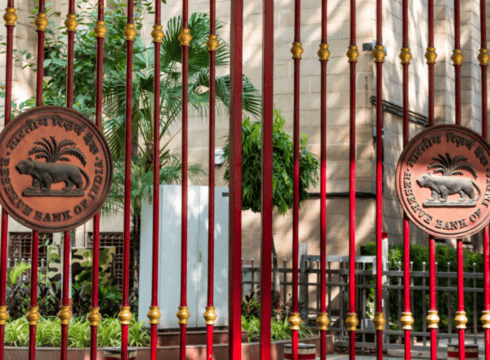The central bank released the framework for the NUE, a retail payment system to compete with the NPCI, in 2020
The likes of Facebook, Google, Amazon, Flipkart, Tata Group had formed consortiums to get the NUE licence, however, all the proposals seem to have fallen short of the RBI’s expectations
All the applications for the NUE licence were submitted in March-April 2021, but there has been no communication from the RBI after that
Inc42 Daily Brief
Stay Ahead With Daily News & Analysis on India’s Tech & Startup Economy
The Reserve Bank of India (RBI) has reportedly put the issuance of licences for the new umbrella entity (NUE) network, a retail payment system that was to compete with the National Payments Corporation of India (NPCI), on hold.
Six conglomerates, including Facebook, Google, Amazon, and Flipkart, who had applied for the NUE licence have fallen short of the RBI’s expectations and hence, will not be granted permission to commence business, people aware of the development told the Economic Times.
“It looks like none of the applicants have proposed anything novel or a great technology breakthrough that would have made RBI happy,” a person was quoted as saying. “Almost all of the plans were similar to that of the NPCI, which apparently did not enthuse the RBI.”
An initiative of the RBI and the Indian Banks’ Association, the NPCI is an umbrella organisation that operates retail payments and settlement systems in India, including the popular Unified Payments Interface (UPI). The NUE was supposed to be set up as a separate entity that could reduce risks of overload on the UPI infrastructure and work as an alternative to the NPCI, promoted by banks.
The RBI had released the framework for the authorisation of the NUE in August 2020. Post that, several major players in the Indian banking and payments landscape came together to apply for the licence. As the race gained momentum in early 2021, Tata Group showed interest to form an association with Kotak Mahindra Bank, Airtel Digital, HDFC Bank, Flipkart, Mastercard and PayU.
Ecommerce giant Amazon formed a grouping with ICICI Bank, Axis Bank, Visa, Pine Labs and BillDesk, while Paytm partnered with the likes of Ola Financial, Policybazaar, and IndusInd Bank for the NUE licence. The applicants also included a consortium of Google, Facebook, and SoHum Bharat, along with Jio Infosystems.
“All the applications were given in March-April 2021 but there has been no communication from the RBI after that,” a person involved in the process was quoted as saying by the publication.
“Some banks did check with the regulator a couple of times but were told to wait and we haven’t heard about this for a long time now,” the person added.
As per the central bank’s framework for the NUE, the entities were required to have a minimum paid-up capital of INR 500 Cr to support/ address the need of capital for managing risks, invest in technological infrastructure, and for business operations, among others.
Besides, no single promoter/ promoter group could have more than 40% investment in the capital of the NUE. The promoter/ promoter group shareholding was also mandated to be diluted to a minimum of 25% after 5 years of the commencement of business of the NUE.
“The RBI proposal had evoked a lot of interest in the market and people had submitted plans. It was a good alternative to the NPCI and needed in a large market like India, but given the success and popularity of the NPCI (it) is a difficult proposition to push through,” another person involved in the matter was quoted as saying.
It is also pertinent to note that the RBI had earlier put its plans to allow private establishments to create alternative digital payment platforms on hold owing to data safety concerns.
{{#name}}{{name}}{{/name}}{{^name}}-{{/name}}
{{#description}}{{description}}...{{/description}}{{^description}}-{{/description}}
Note: We at Inc42 take our ethics very seriously. More information about it can be found here.


